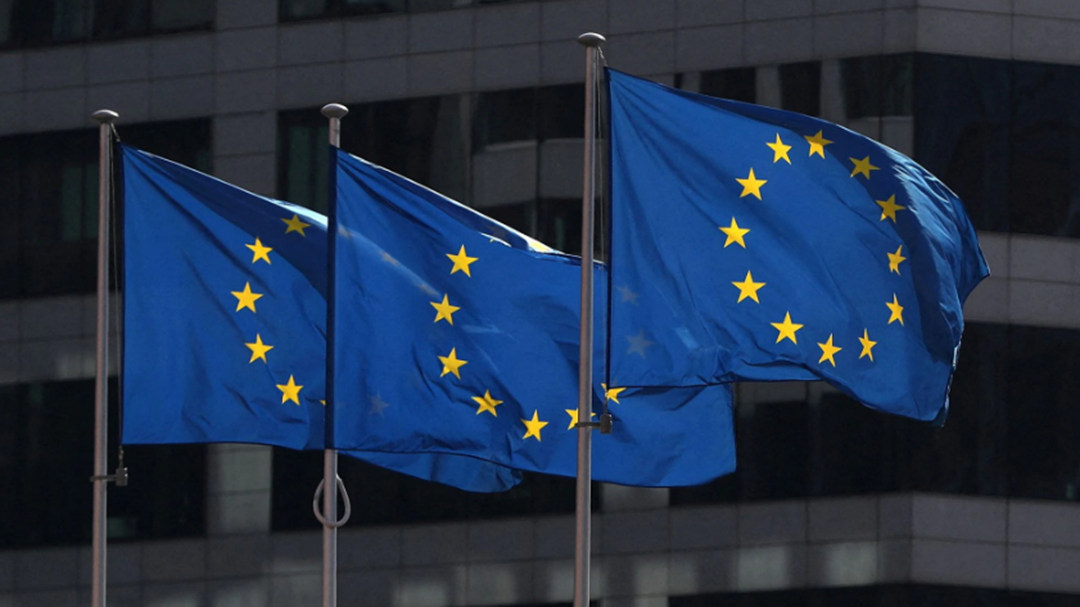
European Union flags fly outside the European Commission headquarters in Brussels, Belgium, April 10, 2019. /Reuters
European Union flags fly outside the European Commission headquarters in Brussels, Belgium, April 10, 2019. /Reuters
The European Union's foreign ministers disagreed on Monday on whether and how to slap sanctions on Russia's energy sector, with Germany saying the bloc was too dependent on Russian oil to decide an embargo.
Oil prices surged over 7 percent on Monday, with global benchmark Brent futures going up by 7.12 percent to $115.62 per barrel, while U.S. West Texas Intermediate (WTI) crude futures rose 7.09 percent to $112.12 per barrel.
It is a divisive choice for the 27-nation EU to target Russia's lucrative energy exports as the U.S. and UK have done. The bloc relies on Russia for 40 percent of its gas.
One EU diplomat said some hoped that by June the EU would have found enough alternative sources of energy to seriously consider an oil embargo. No date has been agreed though, and other EU states may have different targets in mind.
Germany and the Netherlands said the EU was dependent on Russian oil and gas and could not cut itself off right now.
"The question of an oil embargo is not a question of whether we want or don't want (it), but a question of how much we depend on oil," German Foreign Minister Annalena Baerbock told reporters.
"Germany is importing a lot (of Russian oil), but there are also other member states who can't stop the oil imports from one day to the other," she said, adding that the bloc should instead work on reducing its reliance on Moscow for its energy needs.
Meanwhile, Saudi Arabia on Monday said it absolves itself of any responsibility for the shortage of oil supply in light of the recent attacks by Houthis.
The latest report from the Organization of the Petroleum Exporting Countries and allies including Russia, together known as OPEC+, showed some producers are still falling short of their agreed supply quotas.
(With input from Reuters)

